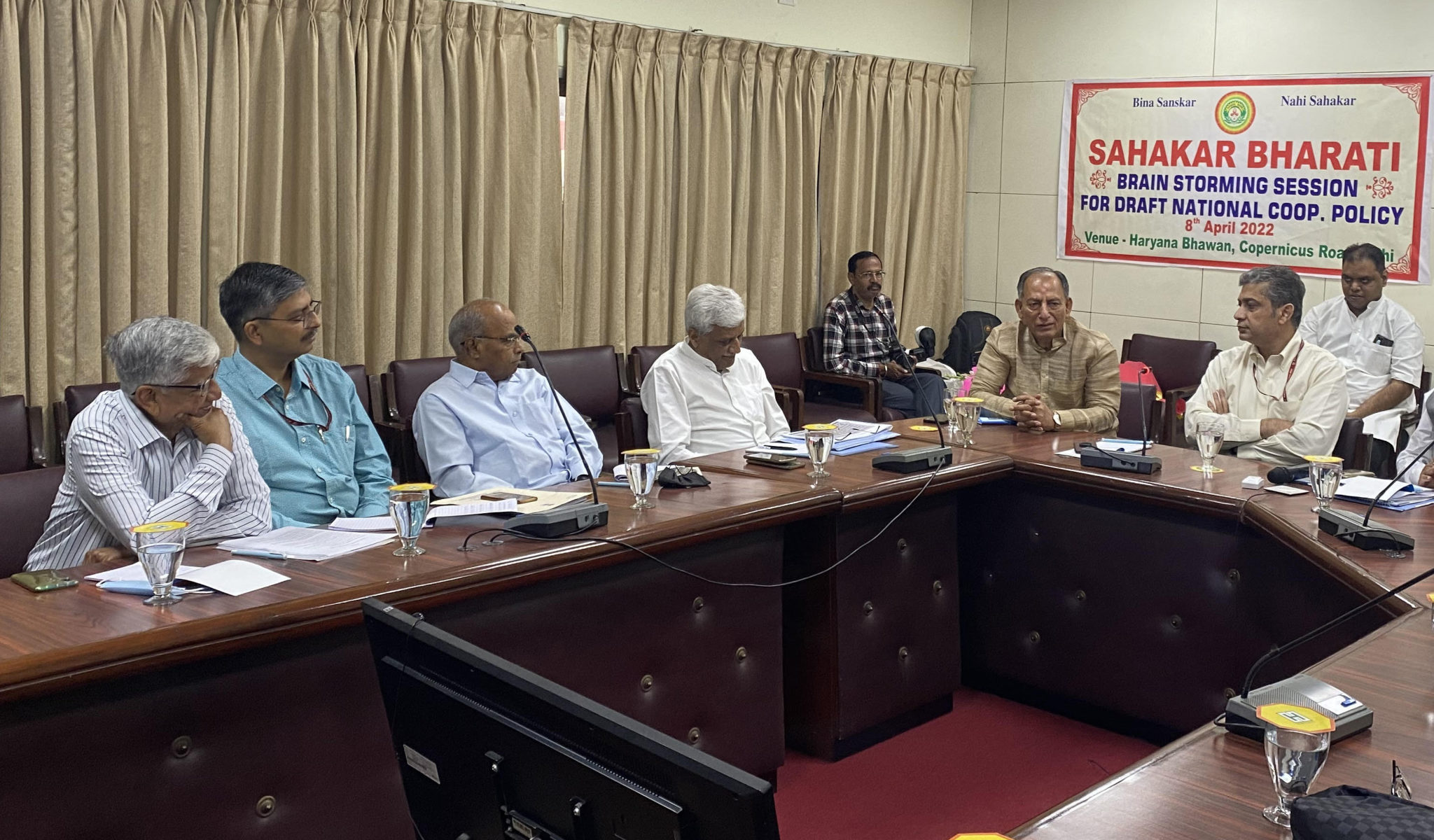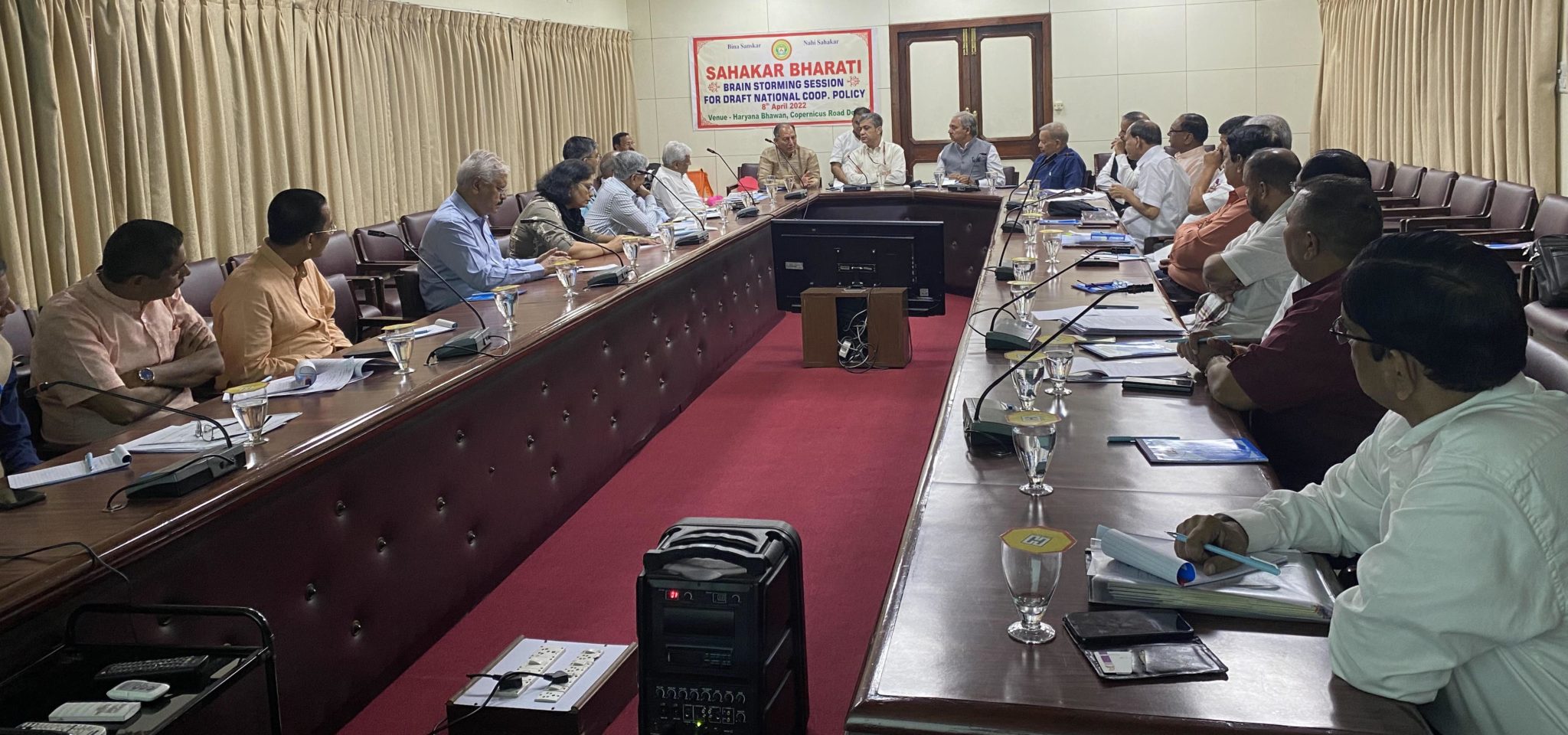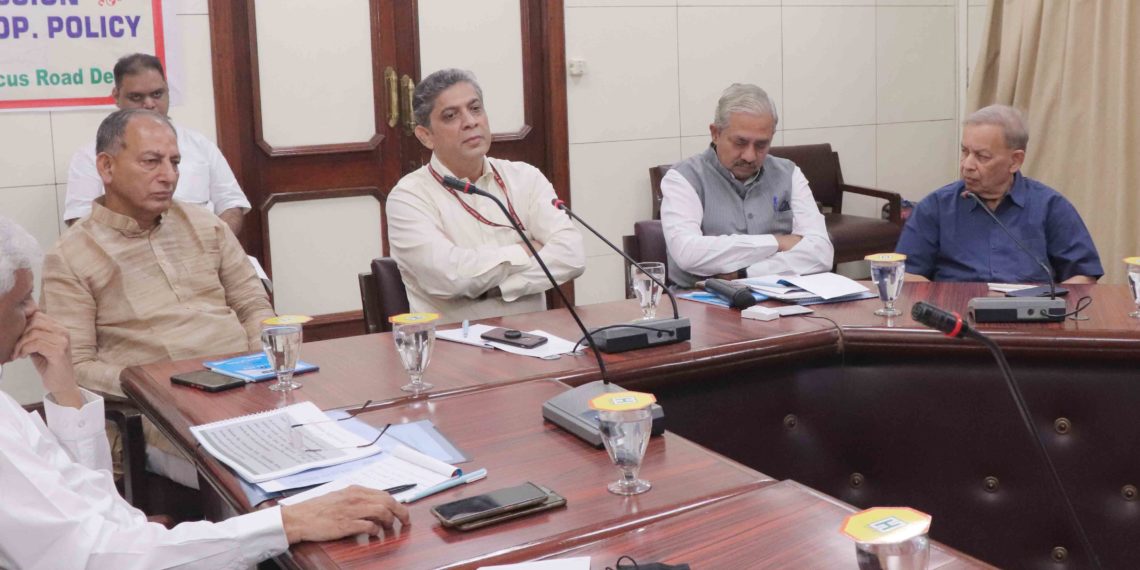A couple of days before Union Minister Amit Shah addressed a co-op conference on new co-op policy, Sahakar Bharati organized a brainstorming session for making a draft of the National Cooperative Policy at Haryana Bhawan, in which participants came from different parts of the country focused on attracting youth with the cooperative movement and some deliberations on the three-tier structure.
Many suggestions came out from the event which are to be included in the draft, as assured by the main organizers of the event. It was one of its kind events which concluded with a host of ideas.
On the occasion, participants stressed uniform law for cooperatives. A few focused on abolishing the three-tier structure to reduce the cost. Several demands to give some indirect profit to the board of members who are working to take the cooperative to newer heights.
The event was inaugurated by Central Registrar of Cooperative Societies Vijay Kumar. Sahakar Bharati National President D N Thakur, General Secretary Uday Joshi, Organizing Secretary Sanjay Pachpor, Satish Marathe, Jyotindra Mehta, Amit Shah OSD Dr. K K Tripathi, ICA-AP Regional Director Balu Iyer and many other experts from cooperative field were the part of the event.


“Due to regional imbalances, the cooperative movement is facing a lot of difficulties. The engagement of youths in the country’s cooperative movement is very low and we should think on this subject how we can attract more and more youth to the movement. Besides, in a bid to build transparency, we are focusing on putting the registration process of co-ops and other things online”, he added.
In his speech, Iyer underlined the importance of the authentic data of cooperatives in the country and the information on successful co-ops in transforming the lives of people. Giving several examples, he said Australia-based Capricorn, the largest automotive cooperative, has become the fastest-growing co-op.
While addressing the participants, Nafcub President Jyotindra Mehta said, a cooperative policy was brought in 2002 by then Prime Minister of India Atal Bihari Vajpayee but there has since been no amendment. The co-ops have now become a weapon for political parties to win the elections whether it is Uttar Pradesh or Maharashtra. Before framing the policy, it should be kept in mind to make a provision to end the interference of political leaders or state governments into co-ops”.
“Cooperative should be self-regulatory organizations. Proper branding of co-operatives is an urgent need for data. The co-ops have a contribution of 24 percent in the GDP”, he informed.
Nafcub former CEO D Krishna said, “The registration of co-ops should be easy on the lines of registration of companies. The new policy emphasized making a strong and fast recovery mechanism process”.
“Due to political interference, cooperative banks are forcefully asked for loan waivers by state governments for their political advantage, which pushes them into trouble. The new policy should be focused on promotion and branding of cooperatives”, said Nabard former official.















































